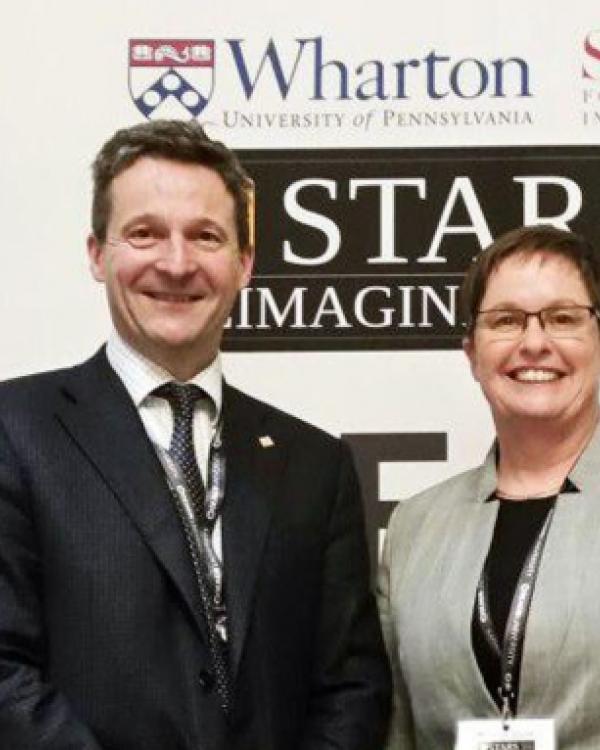
(l-r) Dr Fraide A. Ganotice, Jr., Mr. Nunzio Quacquarelli (CEO and founder of Quacquarelli Symonds Ltd.), Dr. Susan Bridges, Prof. Judith Green
Emeritus professor Dr. Judith Green received a prestigious international award presented by the Wharton School of Business and QS (Quacquarelli Symonds, Ltd.) for her contributions as a research consultant to the project “Problem-based Learning and Educational Technologies in Clinical Education: An Interactional Ethnography.” The project – one of over 500 innovations from around the world submitted to the program – was honored with the Presence Bronze Award for the Asia region at the STARS Reimagine Education Conference and Awards in December 2016.
Dr. Green collaborated with project director Dr. Susan Bridges, as well as colleagues from Hong Kong University (HKU), for this study of higher education initiatives across clinical education settings, including medicine, dental, and speech and hearing. The epistemological approach of the research, known as Interactional Ethnography, is based on the Gevirtz LINC Center’s intellectual methodologies developed over the last 25 years.
Judith Green, an emeritus professor in the Department of Education at the Gevirtz School, has been teaching for more than five decades across levels of schooling (K-20). She received her M.A. in Educational Psychology from California State University, Northridge and her Ph.D. from the University of California, Berkeley, where she explored the relationships between teaching and learning, literacy and knowledge construction. Green’s recent research focuses on how classroom practices support access to students across academic disciplines in classrooms and in virtual communities. Green is a fellow of the American Educational Research Association and the inaugural winner of the John. J. Gumperz Memorial Award for Lifetime Scholarship by the Language and Social Processes Special Interest Group (LSP SIG) of the American Educational Research Association (AERA).
Dr. Green was the long-time Director of the Center for Education Research on Literacy & Inquiry in Networking Communities (LINC). LINC supports innovative literacy and inquiry research approaches and curriculum designs for a digital age that networking communities across K-20 are developing. Some communities involve face-to-face networking across sites. Other digital teaching and learning communities are using the potential for collaborative work in real time across geographic space made possible by the development of advanced networking technologies, provided by CALren (CENIC), Internet2 and their partners, nationally and internationally. LINC supports ethnographic research and innovative curriculum designs and research projects that enhance literacy and inquiry knowledge required in a digital age.